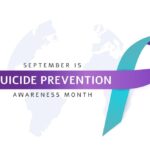Loving someone who’s in addiction treatment is a journey full of hope, fear, confusion, and deep compassion. Whether it’s your partner, sibling, child, or friend, watching someone you care about navigate the rocky path of recovery can be both heartbreaking and inspiring. You want to help—but how?
It’s a balancing act that requires patience, knowledge, and emotional strength. But just as importantly, you’ll need to focus on establishing boundaries and practicing self-care. Here’s how you can walk beside someone in recovery without losing yourself along the way.
Are You Ready to Learn More About Addiction Recovery?
The first step to helping is understanding. Addiction isn’t simply a lack of willpower or a moral failing—it’s a complex medical and psychological condition. The National Institute on Drug and Alcohol Abuse states that “It is considered a brain disorder, because it involves functional changes to brain circuits involved in reward, stress, and self-control.”
Learning why alcohol use disorder (AUD) or substance use disorder (SUD) develops, the treatment process, and common challenges—such as detoxification and withdrawal, relapse, and co-occurring mental health disorders—helps you become a more effective, empathetic support system.
Read books, attend open support group meetings like Al-Anon or Nar-Anon, listen to podcasts from addiction science professionals, or consult with a counselor who specializes in substance use. The more informed you are, the less likely you’ll fall into cycles of blame, shame, or frustration.
Be Present Without Trying to “Fix” Everything
You might feel a strong urge to step in and solve their problems—this could be a carryover reaction from when they were struggling before their diagnosis of AUD or SUD. You may also think that if you just say the right words or do the right things, they’ll be “better.”
However, recovery isn’t something you can do for someone else—it’s a deeply personal process. What’s in your control is to:
- Be emotionally available.
- Listen without judgment.
- Validate their feelings without trying to change them.
- Celebrate small wins.
And when difficulties arise, remind them that it’s part of the process, not the end of the road.
Respect Their Program and Privacy
If your loved one is in formal treatment, they may be participating in group therapy, 12-step programs, or other structured recovery work. These programs often emphasize personal responsibility, confidentiality, and routines. Respecting that space is crucial.
Don’t press them to share everything with you. Let them disclose what they feel comfortable with. Support their commitments to meetings or therapy, and participate in family or friend sessions when asked. Trust the process, even when it doesn’t move as quickly as you’d hoped.
Set Healthy Boundaries
One of the hardest truths for loved ones of those in recovery is this: caring for a person doesn’t mean enabling them.
Boundaries aren’t punishments—they’re protective lines that preserve your well-being and promote accountability. This might mean refusing to give money, saying no to housing requests if conditions aren’t met, or walking away from conversations that become abusive. You can love someone fiercely and still say, “This behavior isn’t okay.” And in doing so, you often become a more powerful ally in their recovery.
BetterHelp offers more details about the importance of setting healthy boundaries.
Practice Radical Self-Care
Supporting someone through addiction can be draining. It’s easy to neglect your own needs in the process, especially if you’re used to being the “strong one.” But burnout doesn’t help anyone—you can’t pour from an empty cup.
Make time for activities that replenish you—whether it’s exercise, reading, time with friends, or simply doing nothing at all. Seek therapy or counseling for yourself. And again, consider mutual aid programs such as Al-Anon or Nar-Anon, where your story can be heard.
Be Prepared for Possible Relapse
It’s often part of the recovery journey, and while it’s painful to watch someone you love slip back into old patterns, it doesn’t mean treatment has failed or that they don’t care. It means they’re human.
If a relapse happens, respond with compassion and firmness. Encourage them to return to treatment or reach out to their sponsor or therapist. Try not to panic or catastrophize. The recovery path is rarely linear, but each step—forward or backward—teaches something valuable.
How Ivory Plains Helps You Keep Hope Alive
Many people feel they’ll face recovery alone, but that’s never the case at our inclusive addiction rehabilitation program in Adair, Iowa. Our board-certified professionals offer many opportunities for individuals in AUD or SUD recovery—and the people who care for them—to know just how the process is reinforced with quality attention during rehabilitation and, after they return home from residential treatment, personalized continuing care. Talk to our admissions team to learn more.





